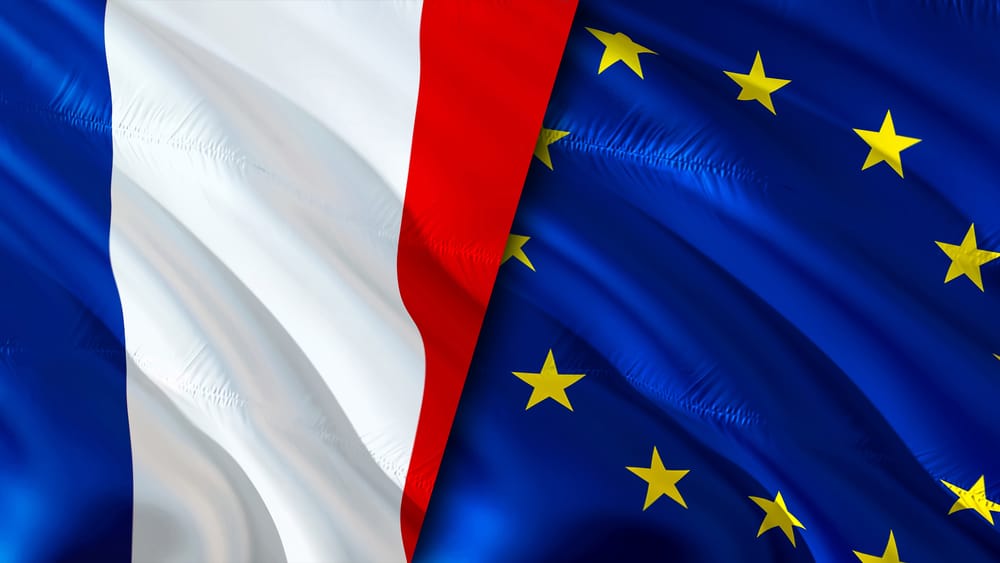France and the EU have been fighting it out in court over import laws concerning a CBD case. If the EU wins it means a forced legalization of CBD across the entire EU… But if France wins, could it be the beginning of the end for CBD?
Before looking into EU CBD laws, we need to shift our attention to the World Health Organization. One of the big cases in the world of legal cannabis has to do with an upcoming vote about cannabis scheduling based on recommendations put out by the WHO (World Health Organization). There are several recommendations that cover a variety of topics on the subject, a few of the main ones being: taking cannabis out of schedule I of the Single Convention on Narcotic Drugs (substituting it instead with simply THC), and removing THC altogether from the Convention on Psychotropic Substances.
It also recommends looking at individual cannabinoids, like CBD, separately from the rest of the plant, and not scheduling non-psychoactive cannabinoids the same as those that are psychoactive. Along with this it recommends allowing cannabis extracts with up to .2% THC to not be scheduled by either convention. This last one opens the door for easier trade between countries since it would set a legal international benchmark.
The recommendations were supposed to be voted on already, but due to different issues the vote has been put off a couple times, with a current date in December. During this time, member countries are implored to better understand the recommendations and all their implications before the vote.
Now, if the vote goes sideways in December, and the recommendations are rejected, then the old rules regarding cannabis apply. Cannabis is illegal, a schedule I drug according to the Single Convention, and CBD and all other cannabinoids are scheduled the same.
This would erase a lot of the progress that’s been made in the gray area of the last few years, and essentially illegalize CBD. If that happens, what’s going on between France and the EU won’t matter at all. But if those recommendations go through…well there might be some very interesting CBD case laws coming out of the EU thanks to France and its super stringent policies about cannabis.’
To learn more about EU CBD laws, subscribe to the Medical Cannabis Weekly Newsletter
It’s not only CBD
This case didn’t start out being about cross-border trading within the EU. It started out simply as a violation of French law. In 2014 Sébastien Béguerie and Antonin Cohen-Adad, the owners of Kanavape were arrested for selling a CBD product in France which was made in the Czech Republic and imported to France.
The product didn’t break with standard EU law, as it had within .2% THC – max by EU standard, and was cultivated according to EU regulation. But the import went against French law which stipulates any amount of THC in a product makes it illegal, and that products can only be sourced from certain parts of the plant.
The two men were found guilty in France, and when they appealed their case in France, the judge kicked the case to the EU to see if France’s restrictions went against EU law. Now, several years later, the case is being heard in Luxembourg by the highest court of the EU – the Court of Justice of the European Union (CJEU), kind of like a Supreme Court, the decision of which will be binding all throughout the EU.

The case, of course, is no longer about a French law being broken, but whether France can legally have that law as it goes up against EU law. As in, is France’s ban on CBD oil (as none will have absolutely no THC) in contradiction to EU law. When it comes to CBD, no official rulings have been made yet, so this ruling will be the first concrete stance that the court has taken regarding CBD.
Some basic implications
The first and most basic implication of France winning is that the EU can’t set a global standard for trade within the EU without running up against local laws. In a way it would create a bit of a divide, leave the door open for tons more lawsuits concerning the ability and legality of importing and exporting within the EU when different countries hold different laws. More particular to this case, it would mean that CBD can go on being completely illegal anywhere that local EU member state law allows.
The first and most basic implication of the EU winning is that it reinforces the EU as a central government with the ability to override a single country’s laws. In this particular case it means that due to the inability of individual countries to set their own policies in contradiction to the EU, it forces governments that are in opposition legally to update their laws. To be more specific in this matter, it would force countries to update their drug policies, and for some of them to accept much more lenience than currently desired. Let’s be honest, France doesn’t want to change its laws, but it’ll have to if the EU wins.
What’s France Up To? New Cannabis Fines and Litigation Over CBD
And so will Slovakia, for example, which is the only EU country that has an actual ban on CBD. It will be forced to legalize it. France doesn’t technically have a ban on CBD, but it does have a full ban on THC, so any product that would have trace amounts is illegalized, and this rules out products like CBD oil which will always contain a small amount of THC. If the EU wins, every country in the EU would have to go by the stipulation of up to .2% THC in other products.
The problem with EU CBD laws
France had another issue with the import though. It wasn’t just about THC, but that it was sourced from part of the hemp plant that France ruled illegal for production of CBD – the leaves and flowers. By French law, the only parts of the hemp plant that can be used for ingestible products are the fibers and seeds. This, too, would be in contradiction to EU regulation, and should the EU win the case, a country like France could no longer stipulate which parts of the plant can be used in preparations, so long as EU standards are met.
Other implications?
It should be remembered that though this case is about cannabis, its also about the ability for EU regulation to be upheld between countries, and for the free movement of goods between member states. If the EU wins, it means individual regulations that countries have put in place that are more extreme than general EU regulation, could be nullified.
It means for any standardized stipulation that the EU makes concerning the movement of products between borders, every EU country will have to comply. In this way it’s a very big ruling, not just in what it does for the CBD industry, but for all the thousands + more implications it will have down the line.
Will European Medical Cannabis Shift From Flowers To Oils?
How likely is the EU to win?
The final ruling has not been given, but a preliminary ruling was. The Court of Justice’s advocate general Evgeni Tanchev stated in his analysis that France’s laws aren’t appropriate, or proportionate to account for public health matters. In fact, one of the only ways that France can legally go up against EU law of this nature is to prove a threat to public health, and France as of yet has not shown CBD to be dangerous. While the general expectation is that this opinion will be upheld by the CJEU, the final decision won’t be out until later this year.
EU CBD Laws – Conclusion
The funny thing about this case is that it might not matter at all. If WHO’s recommendations are voted down, the case of France vs the EU is null and void as CBD would undergo blanket illegalization worldwide. It is only if the recommendations are taken that this case has any value. So, it’s not just one story to follow for the outcome of this case, but two. How will WHO recommendations be voted on, and how will the CJEU rule the case of France vs the EU. We’ll find it all out at the end of this year.
Thanks for stopping by CBD TESTERS, your hub for all things cannabis-related. Stop by regularly and make sure to subscribe to the Medical Cannabis Weekly Newsletter to keep up-to-date on all the most interesting industry topics.
Resources:
The Endocannabinoid System Explained (Why Cannabis Is Good for Our Bodies)
Everything You Need To Know About CBD Isolate (a deep look into hemp extracts)
Cannabinoids 101 – Spotlight on CBN (Cannabinol)
EU GMP Extracts: CBD Isolate, CBD Distillate and CBG Isolate
Your Complete Guide to EU GMP-Certified CBD Isolate and Distillate – Spotlight on the regulated EU market
Everything You Need To Know About CBG Isolate
EU GMP-Certified Cannabinoid Isolates and Distillates Explained
Newest Cannabinoid Powerhouse – CBC – What Can It Do for You?
DELTA 8 THC Newsletter (The DELTA 8 THC Weekly Newsletter)
The CBD Flowers Weekly newsletter (your top resource for all things smokable hemp flowers)
The Medical Cannabis Weekly newsletter (International medical cannabis business report)
The Legal Landscape Of CBD Hemp Flower In Europe
Effective Immediately – Most Delta 8 THC Is Now ILLEGAL in The United States (Understanding the latest announcement by the DEA)
Hemp-Derived DELTA 8 THC Products Now Available Online (Understanding the difference between hemp-derived Delta 8 products, to isolate-made products)
Synthetic Cannabinoids (Are they synthetic cannabinoids safe?)
Regulators Go After Smokable Hemp Flower – What Does The Future Hold?The Complex Issue of Cannabis and Hemp Business On Tribal Land
Government Assistance Options for U.S. Hemp Farmers Affected By COVID-19
EU Novel Food and The Legal Status of CBD Oil







